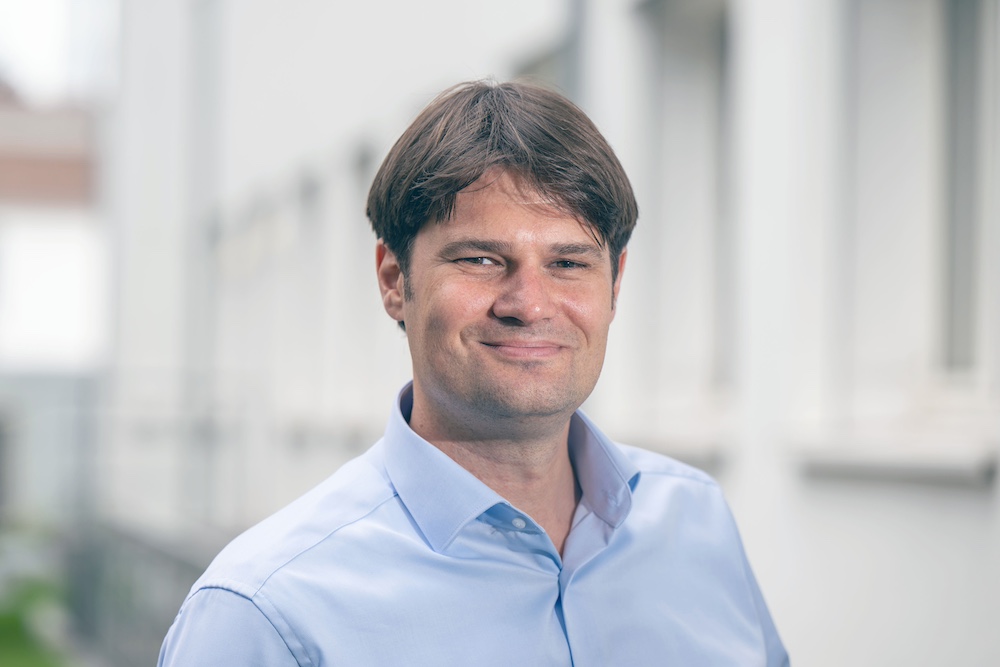As mudanças climáticas apresentam enormes desafios para o nosso mundo, ao mesmo tempo que a demanda por energia elétrica continua a crescer. Desde 1886, empresa líder em engenharia e tecnologia, a Bosch constrói soluções criativas e inovadoras para grandes desafios em toda a indústria e sociedade como um todo.
Hoje, uma das principais áreas de foco da Bosch é a sustentabilidade. A empresa está aplicando sua ampla expertise em engenharia física e digital para tornar a produção de energia mais eficiente e a energia verde mais acessível.
Histórico do projeto
Este trabalho vital levou à criação do sistema de célula a combustível de óxido sólido (SOFC) da Bosch, que fornece uma fonte potente de energia elétrica e calor de alta eficiência e baixa emissão. O SOFC em si é um conversor de energia local e independente que pode ser implantado em larga escala para criar usinas de energia verde na faixa de megawatts.
Exatamente. A alta eficiência elétrica de 60% e a escalabilidade flexível não são os únicos pontos fortes do SOFC. O sistema SOFC é apoiado por um gêmeo digital, que permite aos usuários visualizar e monitorar parâmetros do processo e dados de integridade do sistema, possibilitando a otimização de custo e desempenho ao longo de toda a vida útil do equipamento.
Para alimentar esse gêmeo digital, é preciso muita informação — e todas elas precisam estar integradas de forma precisa e segura com os sistemas corretos para possibilitar o melhor desempenho, sustentabilidade e resultados de relatórios. É por isso que, desde o início, o produto SOFC foi projetado como um dispositivo IoT para operações e negócios baseados em dados.
Construindo uma base de dados para SOFC
O projeto SOFC da Bosch configurou uma infraestrutura nativa em nuvem, incluindo tecnologia de conectividade e pipelines de dados para coletar dados da frota na nuvem e construir gêmeos digitais. Para aproveitar também os dados para análise, a Bosch quis configurar uma Plataforma de Dados Analíticos e procurou a Thoughtworks para fornecer suporte especializado em integração de dados e construção de plataforma. A visão era criar uma Plataforma de Dados Analíticos que fornecesse:
- Acesso fácil e com alto desempenho para cientistas de dados, analistas e engenheiros.
- Dados transformados e enriquecidos, integrados de múltiplas fontes ao longo do ciclo de vida dos SOFCs e de toda a frota.
- Um modelo de dados evoluindo junto com o desenvolvimento do produto e do negócio.
O objetivo era descobrir e construir rapidamente um produto mínimo viável (MVP) de plataforma de dados para o produto SOFC, incluindo processos piloto de ELT (Extração, Carga, Transformação) ponta a ponta, abrangendo múltiplas fontes de dados que poderiam ser usadas para estabelecer um plano para desenvolvimento futuro. Para garantir valor para as pessoas usuárias, três casos de uso foram selecionados:
- Redução do custo de fabricação por unidade através da otimização de parâmetros de produção
- Monitoramento e otimização do desempenho das unidades em campo
- Monitoramento do estado de saúde da unidade ao longo de sua vida útil em contexto operacional
O desafio
O maior desafio durante a construção da plataforma foi a natureza rapidamente evolutiva do sistema SOFC, incluindo o seu mercado. Era essencial que a plataforma fosse construída de forma flexível para se adaptar às inevitáveis mudanças à medida que elas surgissem. Para acompanhar o crescimento esperado e a transição para a produção em massa, também houve um alto foco em automação e escalabilidade. Além disso, a complexidade e a natureza das transformações de dados e da computação necessárias para construir a plataforma representaram um desafio ainda maior.

A expertise e foco da equipe da Thoughtworks na aplicação das melhores práticas de desenvolvimento de software para soluções de dados se alinharam perfeitamente aos nossos princípios e visão de desenvolvimento - construir uma plataforma de dados altamente automatizada, escalável e flexível. Não alcançamos apenas um MVP como resultado, mas também desenvolvemos um plano técnico e conhecimento de ponta na construção de aplicativos de dados.
A expertise e foco da equipe da Thoughtworks na aplicação das melhores práticas de desenvolvimento de software para soluções de dados se alinharam perfeitamente aos nossos princípios e visão de desenvolvimento - construir uma plataforma de dados altamente automatizada, escalável e flexível. Não alcançamos apenas um MVP como resultado, mas também desenvolvemos um plano técnico e conhecimento de ponta na construção de aplicativos de dados.
Desenvolvimento acelerado
Em 4 meses, arquitetamos e construímos a plataforma de dados MVP ponta a ponta (E2E) no Microsoft Azure, incluindo infraestrutura, pipelines de dados e transformações e práticas recomendadas.
Processamento eficiente de dados do sensor
Transformações analíticas complexas para processar grandes volumes de dados de sensores de unidades SOFC.
Dimensionamento preparado para o futuro
Utilizando as melhores práticas e princípios que permitam à plataforma escalar para volumes de dados mais de 100 vezes maiores no futuro.
Adaptação ágil
Com a ideia central de que podemos incorporar mudanças rapidamente para nos alinharmos ao design do produto SOFC, que está em constante e rápida evolução.
O resultado
Inicialmente, optamos por uma pequena equipe com funções multidisciplinares, incluindo especialistas em DevOps e engenheiros de dados. Juntamente com práticas como programação em dupla e desenvolvimento orientado a testes para dados, isso nos ajudou a construir um modelo de entrega mais holístico, otimizado para o ciclo de descoberta, inovação e construção ao longo do tempo.
Antes de definirmos as ferramentas, arquitetura e práticas corretas para a plataforma, iniciamos uma curta fase de descoberta para entender as necessidades da Bosch. Após avaliarmos a adequação e as habilidades existentes dentro da organização, escolhemos Databricks no Azure, com Airflow como ferramenta de orquestração e ADLS para armazenamento, para construir jobs de dados que permitissem o processamento incremental de dados. Utilizamos Infraestrutura como Código (IaC), desenvolvimento orientado a testes e outros princípios de engenharia de dados para construir uma base sólida para a plataforma de dados e, mais importante, acelerar a adição de novos recursos ao longo do tempo.
Tudo isso nos permitiu alcançar a meta ambiciosa de construir o MVP da plataforma e, ao mesmo tempo, construir uma compreensão da unidade SOFC dentro da equipe em apenas quatro meses.
Com a plataforma de dados SOFC, começamos a construir um ecossistema que permitirá à Bosch capacitar suas equipes de engenharia, manufatura e ciência de dados com insights valiosos a partir dos dados para otimizar seus sistemas e processos rumo à industrialização e além.



















